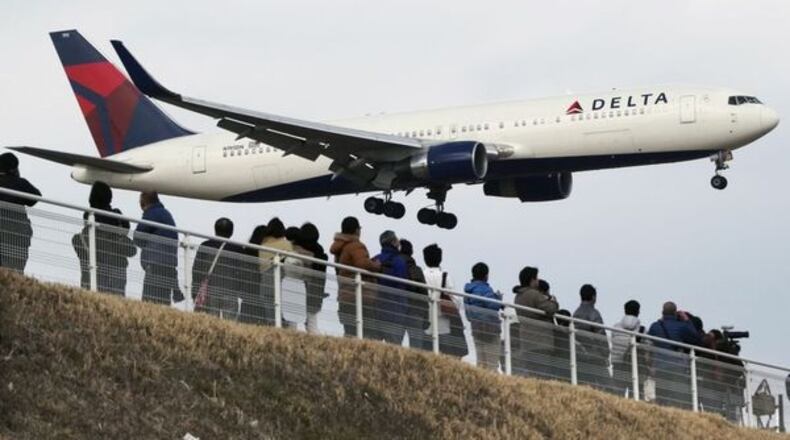Atlanta-based Delta Air Lines says it is disappointed with a new United States-Japan aviation deal reached this week, which the airline expects could threaten its hub in Japan, including its Atlanta-Tokyo route.
The carrier's management is assessing the impact of the agreement reached between the U.S. and Japanese governments during a round of talks this week, which revolved around rights to fly between the United States and Tokyo’s close-in Haneda Airport, only minutes from the center of the sprawling city. Delta now sends most of its U.S.-Japan flights, including those from Atlanta, to Narita Airport an hour or so east of central Tokyo.
Delta fears the new deal will give rivals American and United airlines more access to Haneda through their partnerships with Japanese airlines, which would put Delta at a major disadvantage in competing for U.S.-Tokyo fliers and would jeopardize its Asia flights.
“Delta is deeply disappointed with the final agreement reached today between the U.S. and Japanese governments to incrementally open the Tokyo-Haneda airport," said Delta chief legal officer Peter Carter in a written statement Thursday morning. "Tokyo-Haneda will remain a severely restricted airport with limited competition. Delta is committed to doing our best to maintain the viability of our current Asian route structure and our Narita hub for as long as possible, recognizing that commercial impacts are imminent. Delta will make a careful assessment and adjust our network accordingly.”
Credit: Kelly Yamanouchi
Credit: Kelly Yamanouchi
United and American both welcomed the deal in statements Thursday morning.
"Offering daytime service to and from the heart of Tokyo will create appealing new business and leisure travel opportunities for our global customers," United said in a written statement, adding that the airline looks forward to providing more access to Tokyo from its San Francisco hub, where it has the largest share of trans-Pacific flights.
"It’s important for our customers to have convenient access to downtown Tokyo during the day, and this agreement also allows for desirable arrival and departure times in the U.S. for Haneda service,” American commented in a written statement.
The new deal opens five daytime slots for trans-Pacific operations at Tokyo Haneda airport for U.S. carriers and five for Japanese carriers – in addition to one new nighttime slot each, according to Delta.
Industry group Airlines for America, which Delta left last year over differences on policy matters, applauded the deal.
“Japan is one of the most important global markets for U.S. carriers,” said Airlines for America CEO Nicholas Calio. “Enabling all U.S. carriers to compete for access at Haneda – one of the world’s largest and busiest airports – helps to improve international relations with our Japanese partners, while yielding immense benefits for the traveling and shipping public.”
Delta had mounted an effort led by Delta's special counsel and retired chief legal officer Ben Hirst to oppose a deal in advance of the talks.
For details on why Delta opposed this deal and what it could mean for travelers, read more on myAJC.com.
About the Author
Keep Reading
The Latest
Featured




